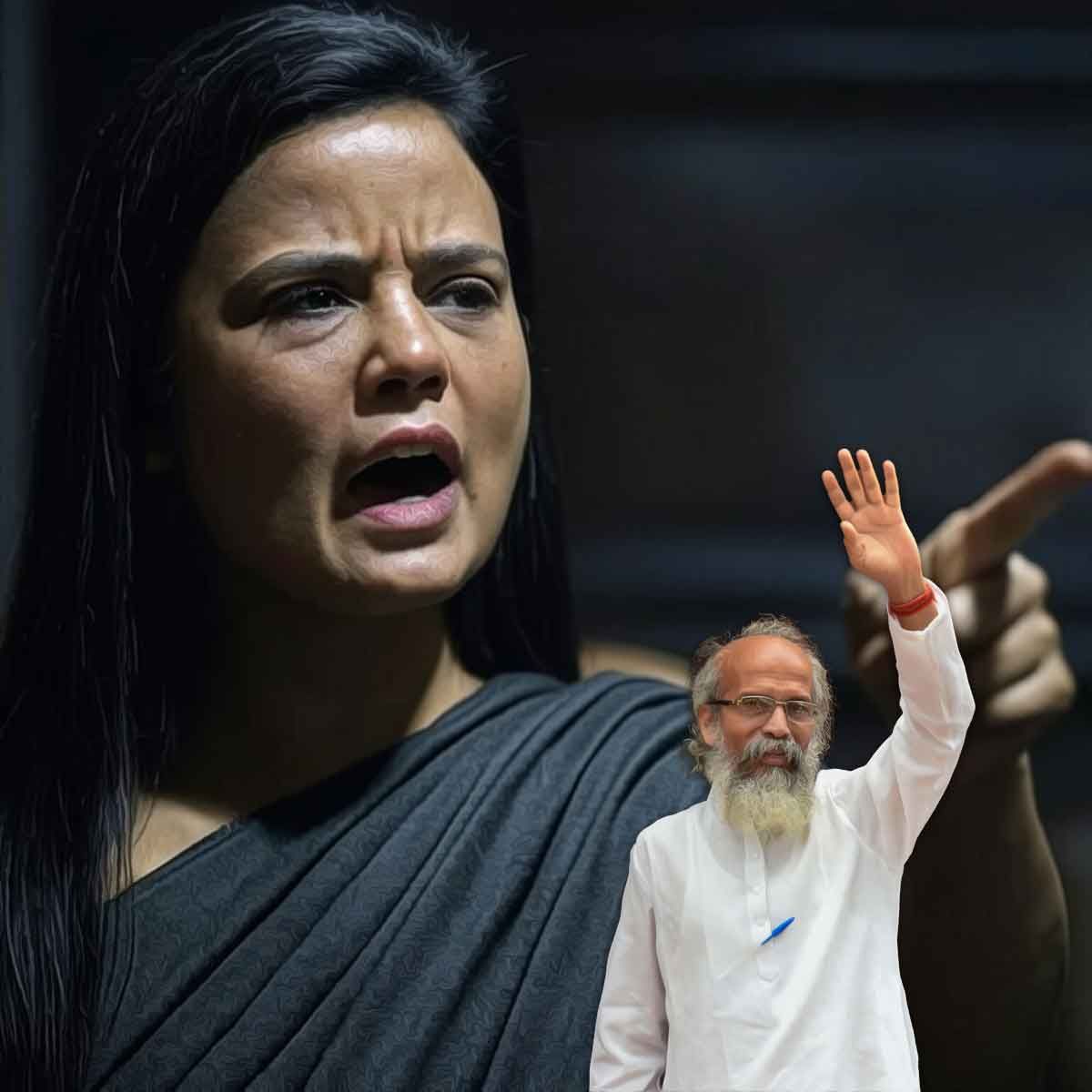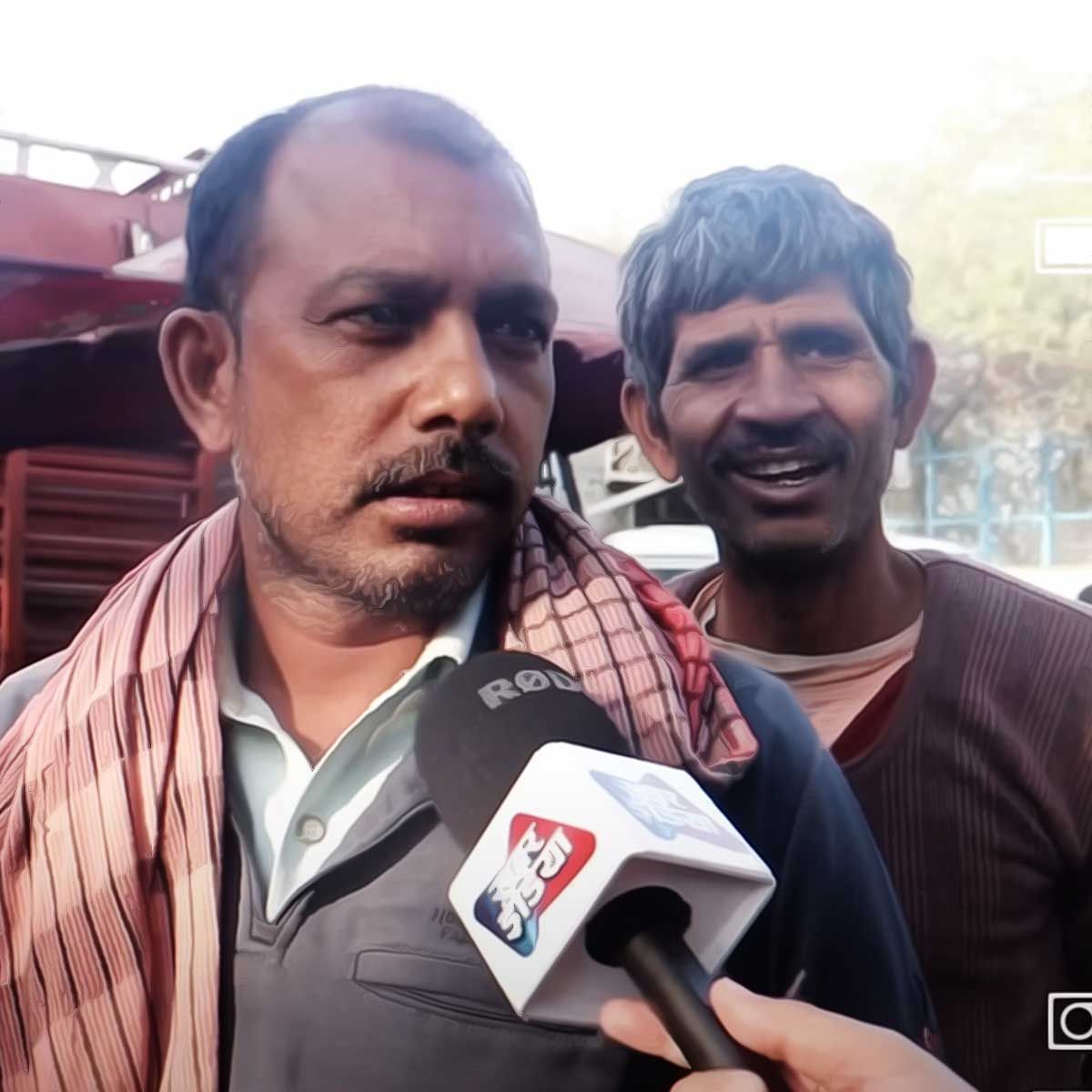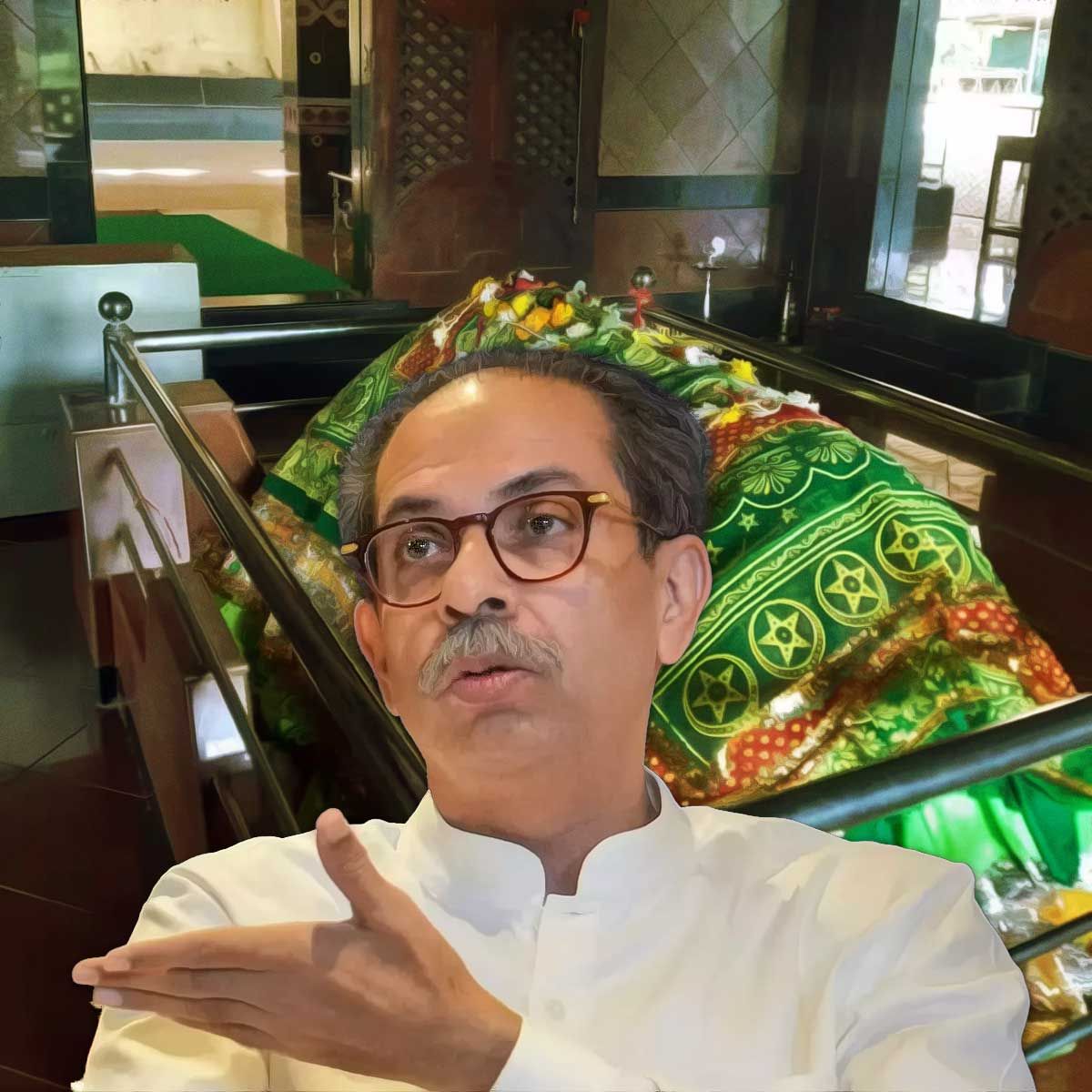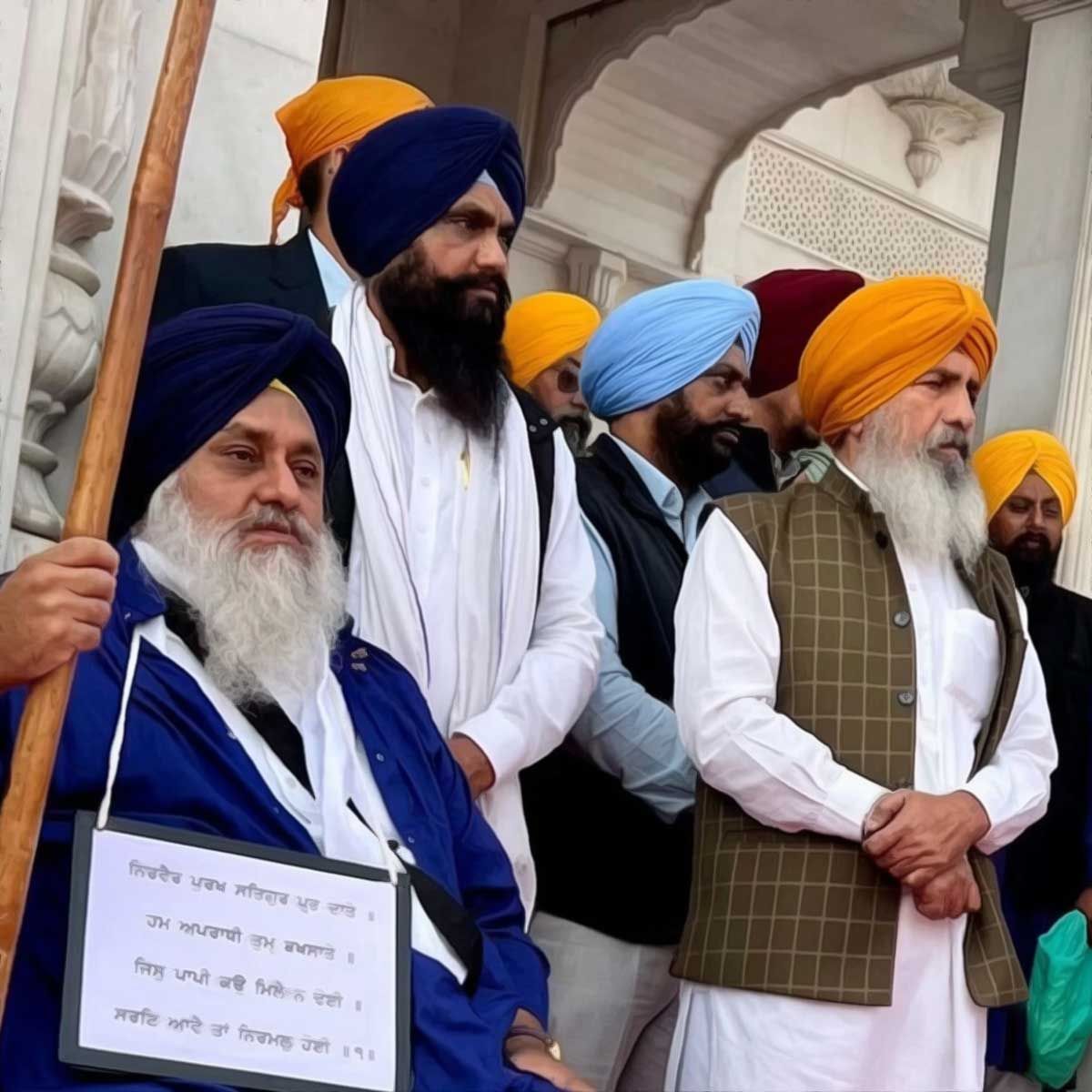More Coverage
Twitter Coverage
JOIN SATYAAGRAH SOCIAL MEDIA
"गजवा ए हिंद vision 2047": Delhi HC denies bail to ex-PFI chief E Abubacker, highlighting PFI's Vision 2047 to overthrow the government, replace the constitution with Sharia Law, and establish a Caliphate by 2047 through terror camps & radicalizing youth

On Tuesday, May 28, the Delhi High Court dismissed a plea by former Popular Front of India (PFI) Chairman E Abubacker seeking his release in the UAPA case being investigated by the National Investigation Agency (NIA). The court, comprising Justices Suresh Kumar Kait and Manoj Jain, highlighted the severe threat posed by the banned Islamist organization, stating that their ultimate goal was to overthrow India's democratically elected government and replace the existing constitution with Sharia Law.
|
The judges emphasized that the PFI's aim was clear and direct—"Hindu leaders who were to be killed, security forces to be attacked, and a Caliphate to be established by 2047." This alarming revelation underlined the extent of the threat posed by the PFI, which was not merely political but fundamentally aimed at undermining the nation's unity and sovereignty.
"The planning of targeted killing of Hindu leaders and attacking the security forces and establishing Caliphate by 2047 would clearly indicate that the target was to challenge the, ‘unity and sovereignty of India’ and not merely to ‘overthrow the government’. Thus, the objective and manner of achieving the same, both, seem culpable," the Court asserted. This statement underscores the gravity of the charges against the PFI, highlighting their broader agenda that extends beyond just a change in governance.
The Court observed that PFI had been deeply involved in dangerous activities, including hosting terror camps, recruiting and radicalizing Muslim youth, and providing firearm training to those who planned to carry out acts of terrorism across the country. This extensive network of operations highlighted the serious threat posed by the organization.
The testimony of witnesses played a crucial role in the Court's decision. These witnesses provided clear evidence that implicated E Abubacker in the organization's sinister plans. Based on their accounts, the Court determined that it was impossible to separate the goal of creating a caliphate from the training provided. The evidence indicated that these activities were part of a broader strategy to challenge and overthrow the existing government structure.
“Such statements also go on to show that objective of such weapon-training was with the idea of overthrowing the democratically elected government to replace the Constitution of India with a Caliphate Shariya Law,” the Court said. This statement underscores the calculated and premeditated nature of the PFI's actions. The weapon training was not just for defensive purposes but was intended to prepare individuals for a direct confrontation with the state's authority.
The Court's observations highlight the extent to which the PFI had gone in its efforts to destabilize the nation. The organization’s activities were not limited to mere rhetoric; they included concrete steps towards radicalizing individuals and equipping them with the skills necessary to carry out their plans. This dangerous combination of ideology and action posed a significant threat to the country's democratic framework.
It may be recalled that Satyaagrah had exclusively reported on PFI's “India Vision 2047”, an 8-page document that detailed the organization's plan to “teach a lesson to the ‘coward Hindus’” of India. This document highlighted PFI's long-term goals and strategies. In the document named ‘India Vision 2047’, the PFI circulated internally among its cadre that they aimed to completely dominate the ‘coward Hindus’ and subjugate them, a goal they believed achievable even with just 10% of Muslims rallying behind PFI.
This document revealed the extremist ideology and dangerous ambitions of the PFI. Their vision was not only about gaining political power but also about establishing dominance over a significant portion of the Indian population through radical means.
Meanwhile, Abubacker was arrested by the NIA in 2022 during a massive crackdown on the banned Islamist organization. He is currently in judicial custody. Abubacker had previously sought bail on medical grounds from the trial court, but his request was denied. Following this, the former chief of the banned organization sought relief from the High Court, only to be denied bail again.
A bench of Justices Suresh Kumar Kait and Manoj Jain denied the bail, stating, “We hereby dismiss the appeal.” Abubacker had sought his release on both merit and medical grounds, but the Court found no justification for granting bail. The denial of bail reflects the seriousness with which the judiciary views the charges against Abubacker and the PFI.
In his plea, Abubacker contended that he was 70 years of age, a cancer survivor battling Parkinson’s disease, and had made several visits to AIIMS during his custody. He argued that these health issues warranted his release on medical grounds.
However, the anti-terror agency NIA opposed the plea, stating that there were several cases against Abubacker. The NIA argued that if he were released, it would deter people from testifying against him. This concern was crucial in their opposition to his bail request.
The NIA apprehended Abubacker in September 2022 during a national operation aimed at cracking down on the now-banned organization. The agency charged him with multiple violations under the Indian Penal Code and the Unlawful Activities (Prevention) Act (UAPA). Specifically, the FIR in the case was registered under sections 120B (criminal conspiracy) and 153A (promoting enmity between different groups) of the Indian Penal Code, 1860. Additionally, charges were filed under sections 17 (punishment for raising funds for a terrorist act), 18 (punishment for conspiracy), 18B (punishment for recruiting of any person or persons for a terrorist act), 20 (punishment for being a member of a terrorist gang or organization), 22B (punishment for the offense relating to the support given to a terrorist organization), 38 (offense relating to membership of a terrorist organization), and 39 (offense relating to support given to a terrorist organization) of the Unlawful Activities (Prevention) Act, 1967.
These charges highlight the serious nature of the accusations against Abubacker and the extent of the legal provisions invoked to address his alleged activities. The NIA's firm stance on opposing bail underscores the perceived threat and the need to ensure that the judicial process is not compromised.
As per the agency, the PFI, its members, and office bearers hatched a criminal conspiracy to raise funds for committing acts of terror across the country. They were conducting training camps to indoctrinate and train their cadre for this purpose. This organized effort to fund and train for terrorism highlighted the serious threat posed by the PFI.
On September 27, 2022, the Ministry of Home Affairs, Government of India, banned the Islamist organization Popular Front of India (PFI) and its associated or affiliated fronts with immediate effect. This decision was made by exercising its powers under sub-section (1) of section 3 of the Unlawful Activities (Prevention) Act, 1967 (UAPA). The ban is effective for a period of five years.
The ban on PFI and its affiliates is a significant step in curbing the spread of extremist ideologies and activities in the country. By invoking the UAPA, the government has shown its commitment to using all available legal measures to protect national security and maintain public order.
The court's detailed examination and subsequent denial of bail to E Abubacker align with the broader efforts to dismantle such dangerous organizations. The legal actions taken against PFI members, including Abubacker, highlight the importance of a robust legal framework to address threats posed by extremist groups.
The government's firm stance, combined with the judiciary's support, sends a clear message about the zero-tolerance policy towards terrorism and radicalization. The collective efforts of various agencies and the judiciary in this case demonstrate the country's resolve to safeguard its democratic values and ensure the safety of its citizens.
In conclusion, the coordinated actions against the PFI, from the NIA's investigation to the Ministry of Home Affairs' ban, and the judiciary's decisions, reflect a comprehensive approach to tackling terrorism. These measures are crucial in maintaining the unity and sovereignty of India, ensuring that organizations like the PFI cannot operate with impunity.
 Support Us
Support Us
Satyagraha was born from the heart of our land, with an undying aim to unveil the true essence of Bharat. It seeks to illuminate the hidden tales of our valiant freedom fighters and the rich chronicles that haven't yet sung their complete melody in the mainstream.
While platforms like NDTV and 'The Wire' effortlessly garner funds under the banner of safeguarding democracy, we at Satyagraha walk a different path. Our strength and resonance come from you. In this journey to weave a stronger Bharat, every little contribution amplifies our voice. Let's come together, contribute as you can, and champion the true spirit of our nation.
 |  |  |
| ICICI Bank of Satyaagrah | Razorpay Bank of Satyaagrah | PayPal Bank of Satyaagrah - For International Payments |
If all above doesn't work, then try the LINK below:
Please share the article on other platforms
DISCLAIMER: The author is solely responsible for the views expressed in this article. The author carries the responsibility for citing and/or licensing of images utilized within the text. The website also frequently uses non-commercial images for representational purposes only in line with the article. We are not responsible for the authenticity of such images. If some images have a copyright issue, we request the person/entity to contact us at This email address is being protected from spambots. You need JavaScript enabled to view it. and we will take the necessary actions to resolve the issue.
Related Articles
- Chennakeshava temple in Belur kicks off 'Rathotsava festival' with Quran recitation: Earlier temple administration requested Muslims to vacate their shops, however, Govt gives their nod for non-Hindus to set up stalls throughout festival
- 'Found stone carvings of Hindu Gods-Goddesses, lotus, Seshnaag, Shrigar Gauri shrine distinctly visible, absolute remnants of ancient Hindu temple': Survey commissioner Ajay Mishra reports, Muslim side continuously uncooperative
- In a major development, Mathura court allowed a plea to remove the disputed structure of the Shahi Idgah Mosque near Krishna Janmabhoomi for hearing: suit filed in the name of "Bhagwan Sri Krishna Virajman"
- Only Dhimmis can be a good Hindu – An article on Shekhar Gupta’s ThePrint argues ‘defending namaz’
- Twitter rewards an Islamist org, set to be banned by India, with a verified blue tick: Here is what PFI has done in the past
- "How many different kinds of ruin do you have to see, before you resign yourself to calling it all 'ruin'?": UP Court gives death penalty to Haleem and Rizwan in a minor's gang rape case, injuries caused made her physically and mentally handicapped
- Calcutta Quran Petition: A petition to ban the Quran altogether was filed 36 years ago, even before Waseem Rizvi petitioned for removing 26 verses from Quran
- Enforcement Directorate tightens its noose around Islamist organisation Popular Front of India (PFI) and freezes its bank accounts under provisions of Prevention of Money Laundering Act
- “Man cannot be freed by the same injustice that enslaved it”: Supreme Court stays Uttarakhand High Court order on Haldwani eviction, and disapproved the manner in which eviction was sought to be carried out by the Indian Railways, urges rehabilitation
- "There is difference between blasphemy and expressing religious opinions based on one’s knowledge of the subject": Historic decision by Madras High Court from 2019






















